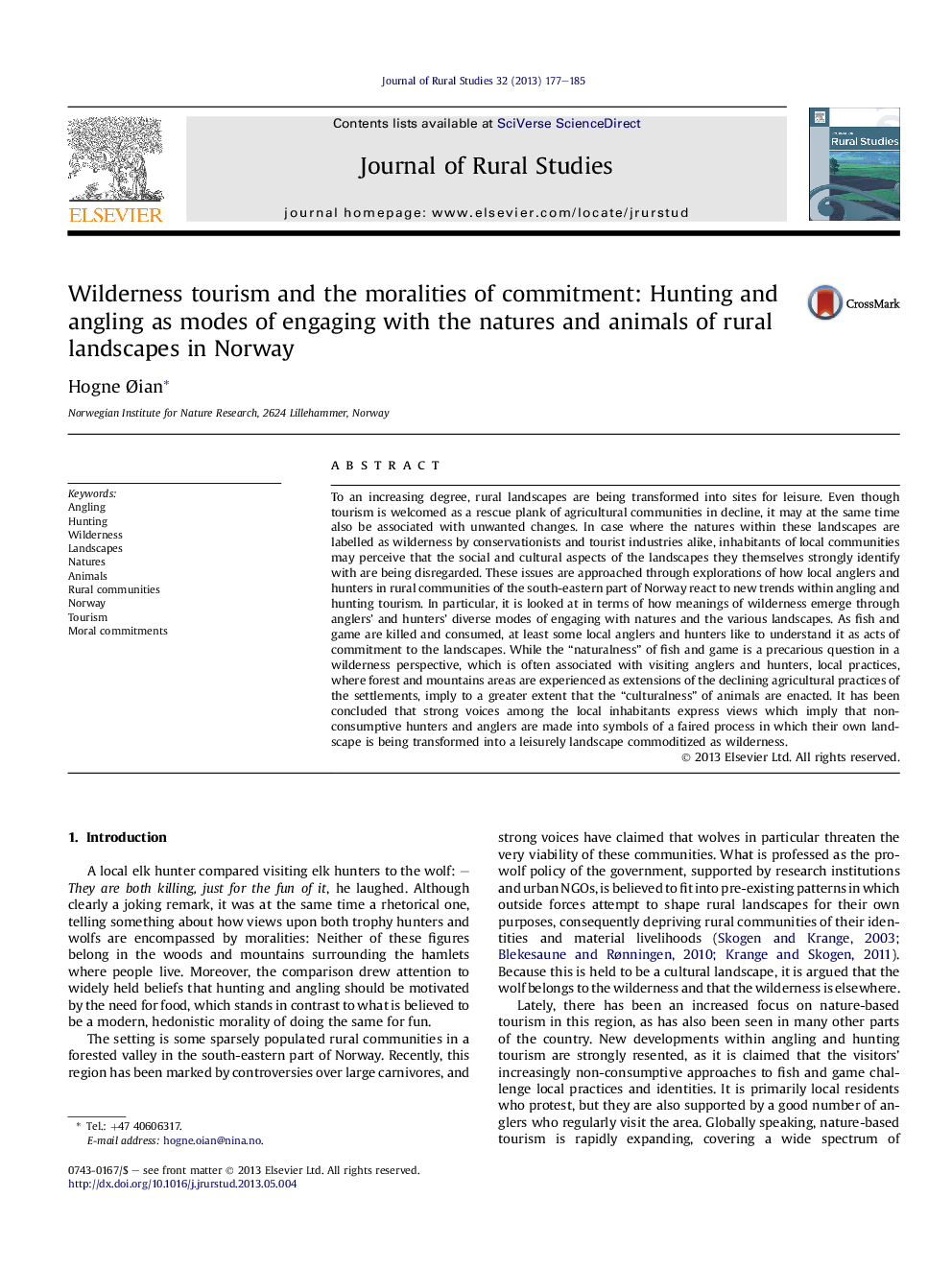| Article ID | Journal | Published Year | Pages | File Type |
|---|---|---|---|---|
| 6545907 | Journal of Rural Studies | 2013 | 9 Pages |
Abstract
To an increasing degree, rural landscapes are being transformed into sites for leisure. Even though tourism is welcomed as a rescue plank of agricultural communities in decline, it may at the same time also be associated with unwanted changes. In case where the natures within these landscapes are labelled as wilderness by conservationists and tourist industries alike, inhabitants of local communities may perceive that the social and cultural aspects of the landscapes they themselves strongly identify with are being disregarded. These issues are approached through explorations of how local anglers and hunters in rural communities of the south-eastern part of Norway react to new trends within angling and hunting tourism. In particular, it is looked at in terms of how meanings of wilderness emerge through anglers' and hunters' diverse modes of engaging with natures and the various landscapes. As fish and game are killed and consumed, at least some local anglers and hunters like to understand it as acts of commitment to the landscapes. While the “naturalness” of fish and game is a precarious question in a wilderness perspective, which is often associated with visiting anglers and hunters, local practices, where forest and mountains areas are experienced as extensions of the declining agricultural practices of the settlements, imply to a greater extent that the “culturalness” of animals are enacted. It has been concluded that strong voices among the local inhabitants express views which imply that non-consumptive hunters and anglers are made into symbols of a faired process in which their own landscape is being transformed into a leisurely landscape commoditized as wilderness.
Related Topics
Life Sciences
Agricultural and Biological Sciences
Forestry
Authors
Hogne Ãian,
